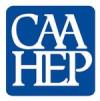Contact
Steven Wilson
Director/Instructor
Orange County Campus, room 108D
919-536-7200, ext. 4219
ems@durhamtech.edu
EMS Professional Training (Continuing Education)
Short Term
View EMS Student Handbook View AEMT Program Info
Program Mission Statement
The Durham Tech EMS Education Program mission is to enrich quality of life within the broader community through teaching, learning, and service while continually striving for innovation and excellence in EMS education.
Course Offerings
Specialty Courses: Advanced training via online courses are offered and are registration fee exempt for NC Public Safety Workers with proof of affiliation. Use the Emergency Medical Services registration form.
Refresher Courses: There are prerequisites that are necessary for admission into the EMS refresher courses. These prerequisites are essential for compliance with the Durham Tech EMS Education Plan approved by the North Carolina Office of EMS (NCOEMS) and NCOEMS pre/corequisite guidelines: NCOEMS Credentialing and Compliance Requirements. All prerequisites MUST be completed AND approved prior to enrolling in any EMS Refresher course. Contact ems@durhamtech.edu assistance with documentation submission and course registration.
EMT Refresher
- Currently holds a valid NC, NREMT, or other state credential.
- Hold a basic level NC EMS credential that has expired within the last two years.
AEMT and Paramedic Refresher
- Currently holds a valid NC, NREMT, or other state credential (AEMT or Paramedic ).
- Hold an advanced level NC EMS credential (AEMT or Paramedic) that has expired within the last four years
Other Courses/Programs
- Emergency Medical Technician Initial Provider course
- Instructor courses
- Paramedic (Continuing Education)
- Emergency Medical Science (Paramedic) credit program
Accreditation Information
The Durham Tech EMS AEMT educational program is actively going through the process of applying for accreditation through the Committee on Accreditation for the EMS Professions (CoAEMSP), signifying our intention to be recognized as meeting the required standards for quality EMS education.
 Commission on Accreditation of Allied Health Education Program (CAAHEP) |  Committee on Accreditation of Educational Programs for the Emergency Medical Services Professions (CoAEMSP) |
Emergency Medical Science AEMT Program Student Achievement Outcome Data
| Year | Students Enrolled | Students Graduated | Positive Placement (see note below) | Total Attrition | Program Completion Retention % | First Time State Exam Pass Rate | State Exam Pass Rate (cumulative) | First Time National Exam Pass Rate | National Exam Pass Rate (cumulative) |
|---|---|---|---|---|---|---|---|---|---|
| 2024-2025 | Not Yet Reported | Not Yet Reported | Not Yet Reported | Not Yet Reported | Not Yet Reported | Not Yet Reported | Not Yet Reported | Not Yet Reported | Not Yet Reported |
| 2023-2024 | 27 | 21 | Not Yet Reported | 6 | 77.8% | 95.2% | 100% | 100% | 100% |
Note: Per COAEMSP: Positive placement means that the graduate is employed full or part-time in the profession or in a related field; or continuing his/her education; or serving in the military. A related field is one in which the individual is using cognitive, psychomotor, and affective competencies acquired in the educational program.

